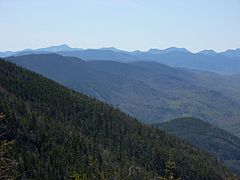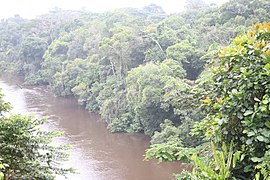Almadaria: Difference between revisions
mNo edit summary Tag: 2017 source edit |
mNo edit summary Tag: 2017 source edit |
||
| Line 1: | Line 1: | ||
{{Infobox country | {{Infobox country | ||
|conventional_long_name = Democratic Republic of Almadaria | |conventional_long_name = Democratic Republic of Almadaria | ||
|native_name = ''La República Democrática de Almadaría'' | |native_name = ''La República Democrática de Almadaría'' | ||
|image_flag = almadaria_85692.png | |image_flag = almadaria_85692.png | ||
|alt_flag = <!--alt text for flag (text shown when pointer hovers over flag)--> | |alt_flag = <!--alt text for flag (text shown when pointer hovers over flag)--> | ||
Revision as of 19:55, 24 July 2023
Democratic Republic of Almadaria La República Democrática de Almadaría | |
|---|---|
|
Flag | |
Motto: Un Pueblo Unificado ("A Unified People") | |
Anthem: La Guerra que Luchamos Fuertemente | |
| 250px Location of XXX (dark green) In XXX (gray) | |
| Capital and largest city | Piedratórres |
| Official languages | Almadarian Your language |
| Religion | 64% Catholicism 32.1% Protestant 3.9% Other |
| Demonym(s) | Almadarian (noun) Almadarianan (adjective) |
| Government | Unitary Presidential Republic |
• President | Arturo Nuñez |
• Vice President | Graciela Parra |
• Council Governor | Javier Becerra |
| Legislature | National Legislative Council |
| Establishment | |
• An event | A date |
| Population | |
• Estimate | 48,820,210 |
| GDP (nominal) | estimate |
• Total | Your GDP = GDPPC x Population (This is calculated for you after first entry) |
• Per capita | Your GDP PC |
| Gini | Your gini coefficient Error: Invalid Gini value |
| Currency | Almadarian Dollar |
| Driving side | right |
Almadaria, officially the Democratic Republic of Almadaria, is a country in Vallos. It is neighbored by Equatorial Ostiecia to the north, XXX, and Takatta Loa to the south. Its shoreline extends against primarily the Polynesian Sea, though its eastern border includes a shared freshwater body of water with its western neighbor. The Democratic Republic is a megadiverse nation, with one of the highest biodiversity per square kilometer across its rainforest, highland, grassland, and desert zones. The economy of Almadaria has significant government intervention, with most public services resources (water, electricity, transport, telecommunications, healthcare, etc.) being controlled or funded by the government. Nevertheless, private industries, including foreign ones, flourish in established free trade zones which benefit all involved from tax incentives and domestic investment. Almadaria has a high rate of literacy, and an equally high level of higher education attendance; this has contributed to both the growth of the economy as well as the standard of living. The tourism, financial sectors are the two major contributors to Almadaria’s GDP. The government of Almadaria is a presidential, representative democratic republic with a multi-party system. Based on Cartadanian practice, it is broken into three branches (Executive, Legislative, and Judicial), though the legislative exercises significantly more power over the executive, primarily by having no ability to be vetoed by the President and being able to set the government budget.
Almadaria underwent intense political instability in the later twentieth century, its primary cause being decades of political repression under President Sergio Arbelaez. Despite Arbelaez leaving office in 1996 and sweeping political reform thereafter, a low-intensity conflict against fringe guerilla and criminal groups exists to this day.
Almadaria is a member of the League of Nations. Though nominally non-interventionalist, the government does willingly lend its armed forces to the peacekeeping efforts of the organization.
Etymology
Almadaria
History
What is a general overview of your country's path through history?
First era
How was your country originally settled?
Second era
What were the first political structures of your country? Did it have any very early rivals or was it controlled by a foreign country?
Third era
What were your country's first major moves on an international level?
Fourth era
Did your country ever have a period of significant decline or internal struggle?
Fifth era
Was your country subject to imperialism later in its life, or was it an imperial power?
Sixth era
How did the 20th century affect your country?
Geography
-
First lovely location
-
Second lovely location
-
Third lovely location
-
Fourth lovely location
-
Fifth lovely location
-
Sixth lovely location
What is the general explanation of how your country exists within the world?
Climate and environment
Is your country hot or cold?
Government and Politics
How is your country ruled or governed?
Executive
Who is responsible for making high level choices in your country? Does it have a President or King?
Legislative
Who decides the laws for your country? Is there political parties and a legislature?
Federal subdivisions
How is your country divided? Are there states or provinces, or is the country directly governed from the capital as a unitary state?
Politics
What political factions exist? Who has ruled predominantly?
Law
What kind of laws and legal system does your country employ?
Demographics
What kind of people live in your country?
Ethnicity
What ethnic groups make up your country?
Language
What language or languages do your country's people use? Are there any previously used languages no longer common? Are these languages native to your country or shared with another?
Religion
Religious affiliations in the XXX (20XX)
What do your country's people believe in religiously, if anything? How many groups are there?
Education
How many people in your country are educated?
Culture and Society
What do your people do, and what are they like?
Education
What is your country's education system like? How do the schools work? What do people think about education?
Attitudes and worldview
How do your country's people view life?
Kinship and family
How are families or kinship groups structured in your country?
Cuisine
What do your people eat?
Religion
What do your people believe? Rather than demographics, as above, think about how important religion is to your people and their view about their own and other religions. What is the relationship between the prevailing view and minority religious groups? Is it an official religion, and do any laws exist about free worship?
Arts and Literature
What type of art do your people make? Do they have a tradition of painted art, well-crafted television shows, or great music?
Sports
Does your country have any major sports leagues? What types of sports are played, both professionally and for fun by your country's people?"
Symbols
Are there any prominent symbols which are well known to represent your country?
Economy and Infrastructure
How does your country's economy work?
Industries and Sectors
What are the largest parts of your economy in terms of what they do?
Currency
What exchange systems are used within your country's economy?
Healthcare
How do people in your country procure medical care? How is it paid for?
Labor
How is labor organized within your country? Are there any social institutions or unions which deal with labor concerns?
Transportation
How do people in your country get around? Is there a major highway system as well as sea- and airports?
Energy
What type of energy keeps your nation going? Are you renewable or use fossil fuels, and if you are renewable, how recently did your country transition?
Technology
How advanced is your country? Is it an innovator, or does it largely import new developments?
Military
How large is your country's military? Is it large but poorly equipped or small and elite? Does your country have a martial tradition?






